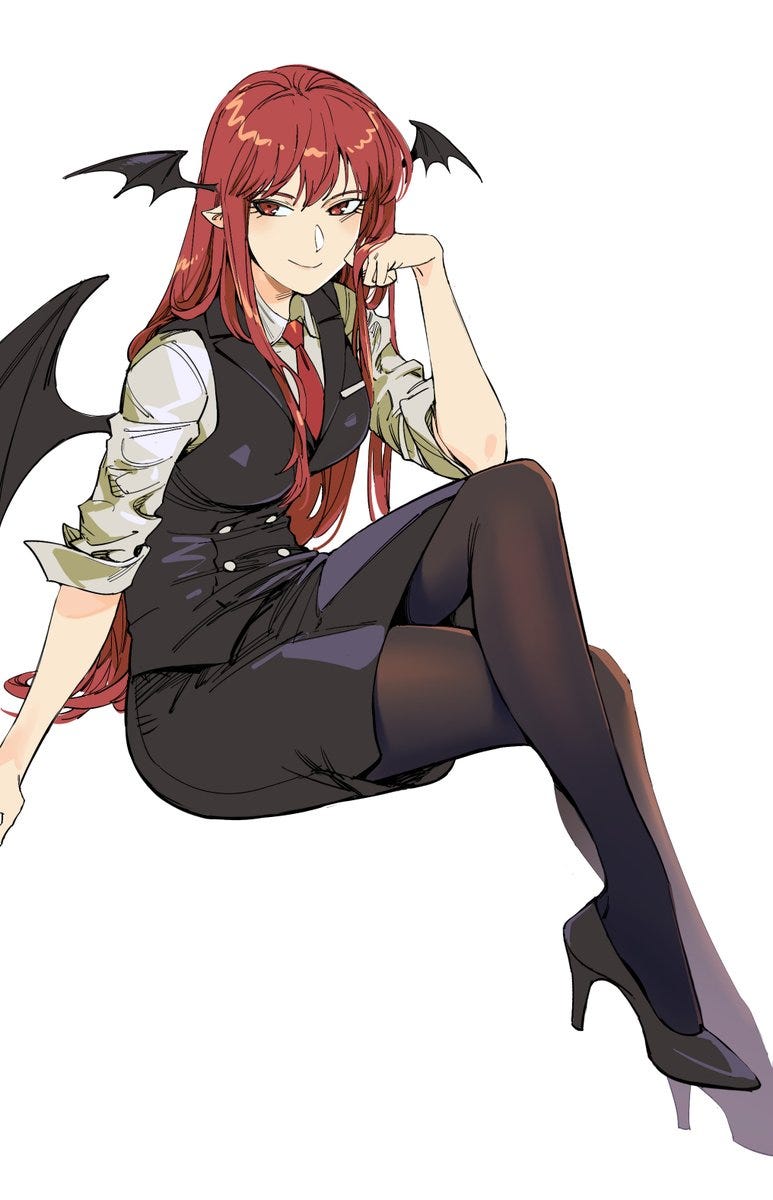Light From Uncommon Stars' Surreal Morality
This is a full-spoilers post for Light From Uncommon Stars. If you want to know why you should read it, my review is here. Turn away if you don’t want the ending spoiled.
LFUS has the Steven Universe dynamic I adore, wherein a vulnerable person is placed in the best possible environment and is allowed to flourish, and we get to watch it happen. Like Steven Universe, Katrina is deeply loved by her caretakers (and honestly, by everyone who meets her). They encourage and nurture her, which allows her to heal and grow. They are unconditionally acceptive, and provide her with inviolable protection.
I want to focus on the inviolable protection bit for a second. Being safe is important for flourishing. As a wish-fulfillment narrative (which is what most fanfic also is), the safety Katrina gets is literally superhuman. She is protected by all the powers of hell, as well as advanced technology that makes humans look like flabby little babies.
Imagine you have someone like that on your side. Someone that loves, can completely protect you, and is the most powerful person on Earth. You’d be inclined to forgive them a lot of trespasses. You might be inclined to overlook their crimes, even. But would you be willing to disregard murder?
I think this is how the families of mobsters live with themselves.
The most compelling storyline in Light From Uncommon Stars for me was the “redemption” of Satomi. She had literally damned six promising young people to eternal torture. I know it’s just words, but remember when you were asked “Is it better for you to get a speck of dirt in your eye, or for someone you never met to be tortured for fifty years?” and you felt visceral horror at the thought of someone undergoing torture for fifty years? Try to just focus on that, but multiply it by six people, and maybe just acknowledge that technically, this torture is infinitely worse, because it continues for eternity.
Satomi is very sympathetic, which reminds us that even Hitler was very friendly and loved by his friends. It seems like the book wants to tell a story were she makes up for her crimes, so we can think of her as better than Hitler when it’s all over. I wasn’t sure how this would be possible, but maybe they can find some way to break those kids out of hell, or trade her soul for theirs, or something. Or maybe it would be a tragedy, where she is also sent screaming into hell to pay for her crimes. No one deserves hell, and adding another soul into it wouldn’t be justice… but it would at least be “deserved” in some sense.
As the novel drew on, I began to get worried. There weren’t really signs of a redemption arc. Satomi asserts that her six former students were unhappy, dysfunctional people, implying she doesn’t feel bad that they’re in hell. She continues to murder people with abandon. When Katrina is insulted, Satomi ensures that man has a heart attack a few days later. I get that it’s awesome to have power like that on your side, but this is bad.
Then, 2/3rds of the way through the book, one of the aliens murders two human teenagers for insulting his mom. Just guns them down in the street, in front of many witnesses, beyond recovery. The alien’s family mind-wipes the witnesses, destroys the bodies, and erases all evidence. They then send the murderer away to live with his dad.
On the one hand, yes his dad is on another planet, so this alien won’t murder any more humans. And yes, this is a stark portrayal of how power works. A race with the technology to completely ignore all human laws without fear of repercussions can just kill people and shield their family from consequences. But it’s a horrific thing to do. This is what corrupt politicians and nobles do. This is what righteous vengeance stories are made of. It’s shouldn’t be waved away because the corrupt family is on the protagonist’s side.
So I began to despair that Satomi would never see justice.
And yeah, it turns out that at the end, Satomi flees the planet with her lover, and has a fulfilling rest of her life being hailed as a hero by aliens, and loved by those who know her. There are never any consequences for what she’s done. She lived a rich life full of atrocities, and then retired happy and comfortable. The story doesn’t even bother to address her lack of redemption, because who cares? The only people who matter are Katrina and her chosen family, and they’re all OK.
It’s mostly fine, because this really is a beautiful book, and because it’s cartoonish enough that one can shrug and say “Hey man, who cares?” The ride was fun. The climax was an absolutely gorgeous violin solo where we are swept inside Katrina’s life and emotions while she plays— We basically get to experience the entire Hero’s Journey recapitulated as an epic musical performance, and it’s stunning. Plus we really do love all the characters, it would be sad to see a terrible ending for Satomi. Seriously, is it really that much different from a Draco in Leather Pants fanfic, where the bad boy is just secretly good and doesn’t have to be ruined for his past? Just enjoy it and move on, says I.
And yet, it still bothers me. Enough that I couldn’t NOT say something about it. But not enough to not recommend it as a great book. :)




